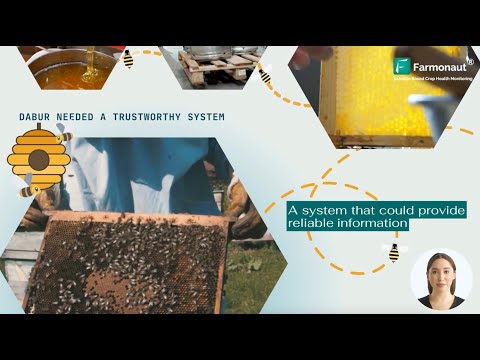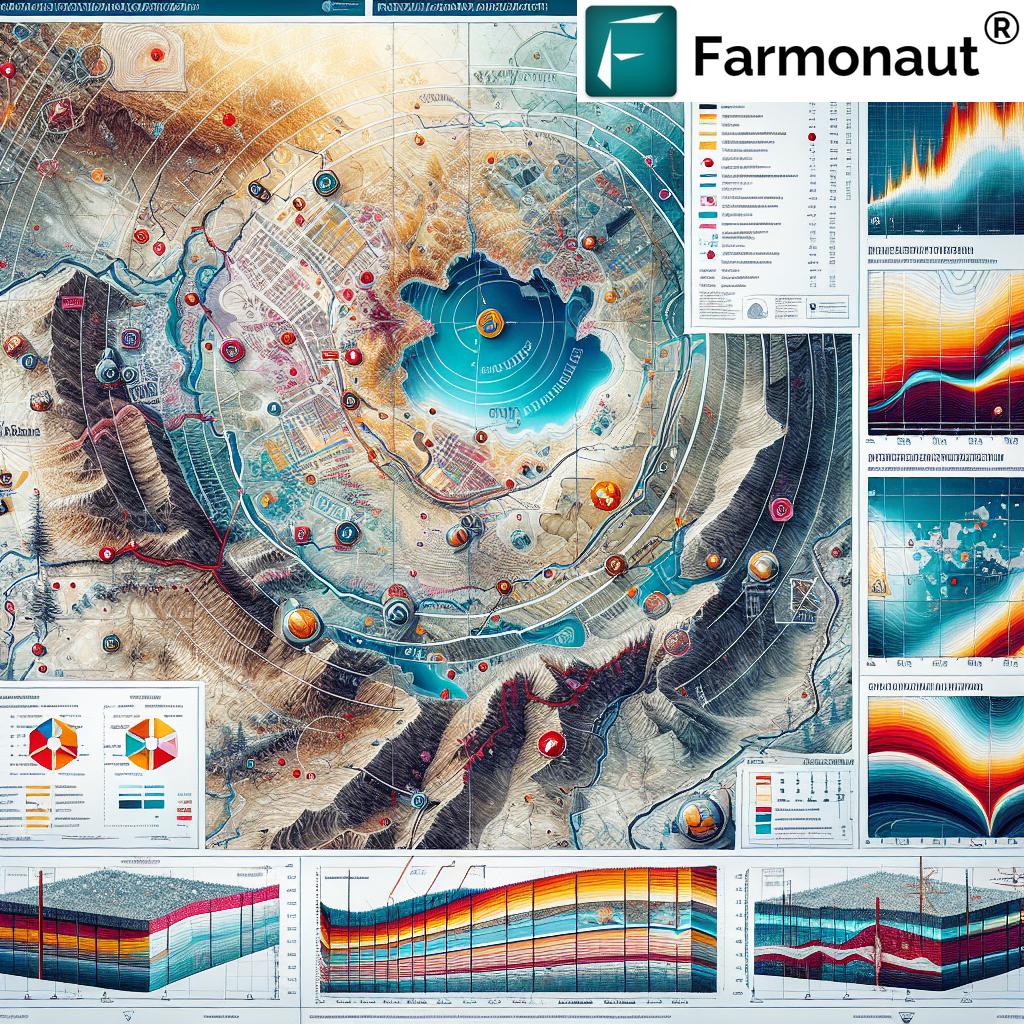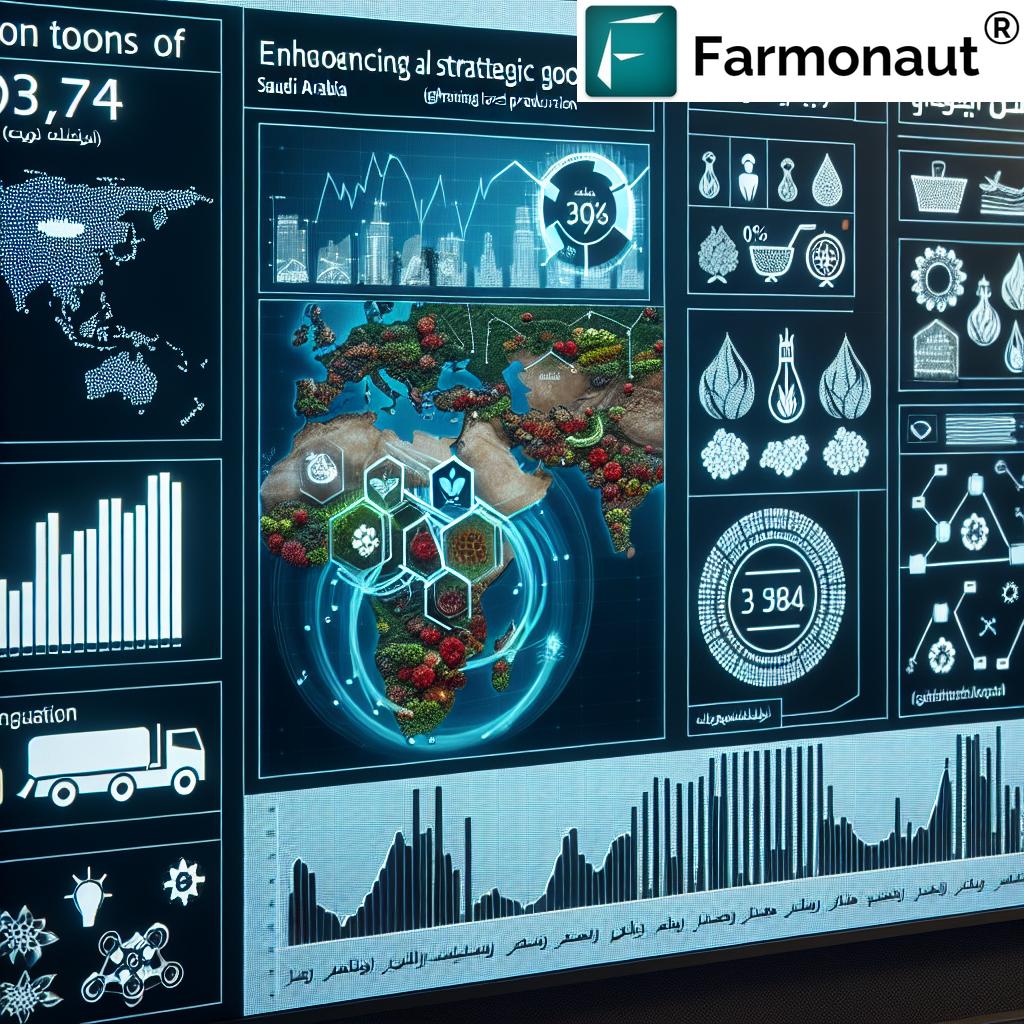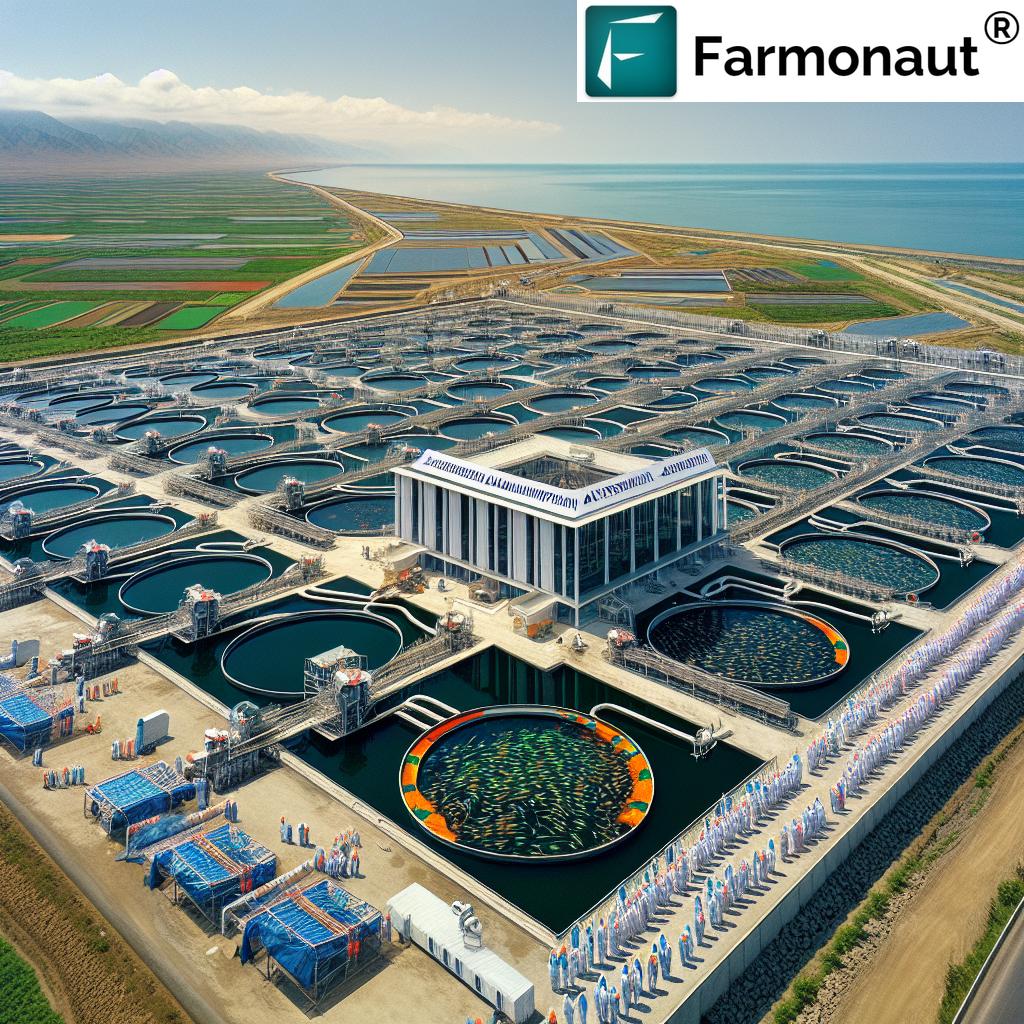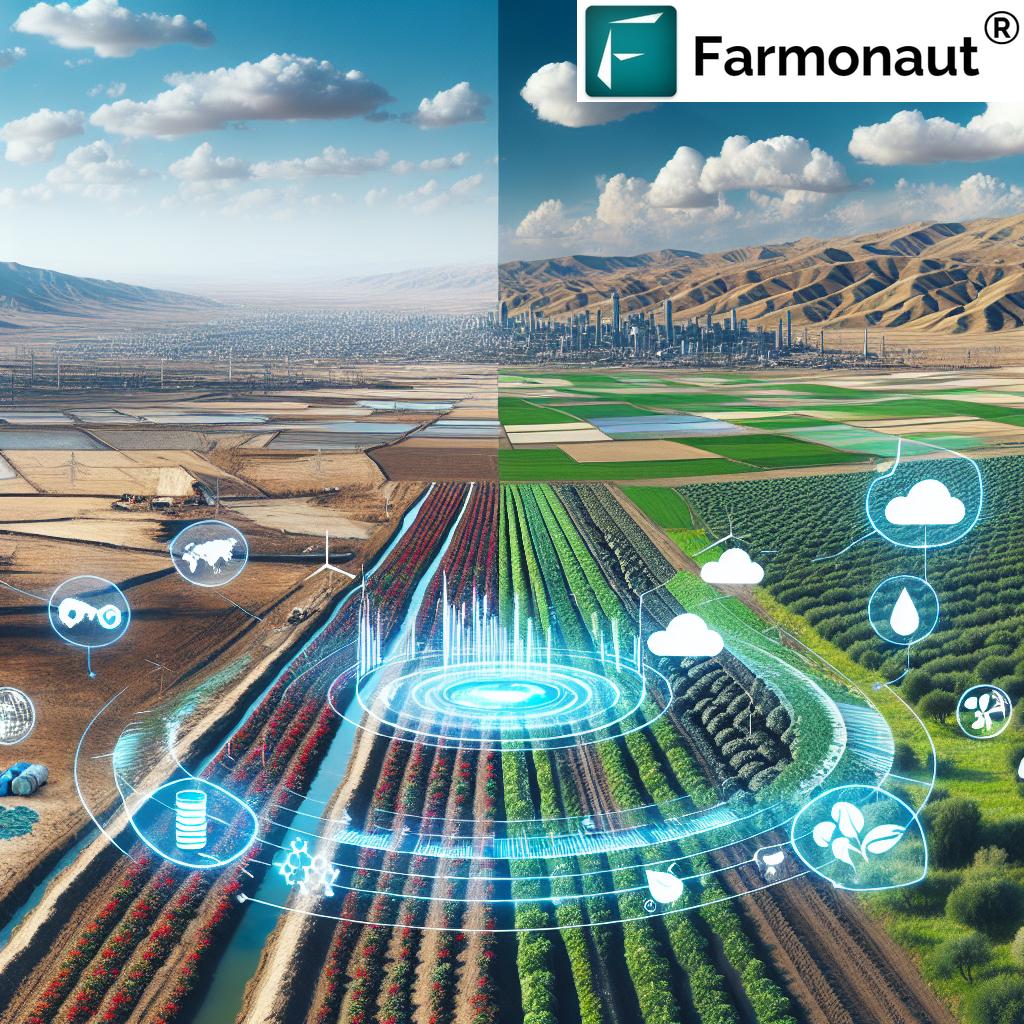Unveiling Ethical Concerns: GIS Insights into Xinjiang’s Agricultural Practices and Global Supply Chain Impact

“Xinjiang produces over 70% of China’s tomato paste exports, raising concerns about ethical sourcing in global supply chains.”
In today’s interconnected world, the agricultural practices of one region can have far-reaching implications on global supply chains and ethical considerations. As we delve into the complex landscape of Xinjiang’s agricultural industry, we uncover a web of concerns that stretch from the fertile fields of western China to dinner tables around the world. Our exploration will shed light on the intricate relationship between farming communities, international markets, and the pressing need for sustainable and ethical agricultural practices.
The Xinjiang Agricultural Landscape: A Closer Look
Xinjiang, an autonomous region in northwestern China, has long been known for its vast agricultural output. The region’s unique climate and geographical features make it ideal for cultivating a variety of crops, including tomatoes, chili peppers, and marigolds. These agricultural products have become significant contributors to China’s export economy, finding their way into countless products consumed globally.
However, recent investigations have brought to light troubling aspects of Xinjiang’s agricultural practices, particularly concerning human rights and labor conditions. A comprehensive report by researchers Adrian Zenz and I-Lin Lin from the Victims of Communism Memorial Foundation has exposed extensive human rights violations against the Uyghur population, including forced labor and coerced land transfers.
Key Crops and Their Global Reach
- Tomatoes: Xinjiang is a major producer of tomatoes and tomato paste, supplying a significant portion of the global market.
- Chili Peppers: The region’s chili peppers are known for their quality and flavor, making them a sought-after ingredient worldwide.
- Marigolds: Often used in the production of natural food coloring and supplements, Xinjiang’s marigold cultivation has global implications.
These crops not only contribute to China’s agricultural export practices but also play a crucial role in global supply chains, reaching consumers through various products and brands.
Ethical Concerns in Xinjiang’s Agricultural Sector
The report highlights several alarming practices that raise serious ethical concerns:
- Forced Labor: There is evidence of widespread use of forced labor in agricultural production, particularly affecting the Uyghur population.
- Land Transfers: Coercive land transfers have been reported, displacing Uyghur farmers from their ancestral lands.
- Political Indoctrination: Workers in agricultural settings are subjected to political indoctrination as part of a broader assimilation campaign.
These practices not only violate human rights but also contaminate global supply chains with products potentially tainted by unethical labor practices.
Impact on Global Supply Chains
The implications of these practices extend far beyond Xinjiang’s borders. Many well-known Western corporations have been implicated in this supply chain issue, including:
- Kraft Heinz
- Nestle
- PepsiCo
- Del Monte
- McCormick
- Unilever
- L’Oreal
These companies, often unknowingly, may be importing agricultural products from Xinjiang that are linked to forced labor practices. The complexity of global supply chains makes it challenging to trace the origins of these products, as they often pass through intermediaries before reaching their final destination.
The Role of GIS in Agricultural Monitoring and Traceability
“GIS technology has improved crop traceability by up to 95%, aiding in the detection of potential human rights violations.”
In the face of these ethical challenges, Geographic Information Systems (GIS) have emerged as a powerful tool for monitoring agricultural practices and enhancing supply chain transparency. GIS technology offers unprecedented insights into crop cultivation, land use patterns, and labor practices, providing a means to address some of the ethical concerns surrounding Xinjiang’s agricultural sector.
GIS Applications in Agriculture
- Crop Monitoring: Satellite imagery and remote sensing allow for real-time monitoring of crop health and growth patterns.
- Land Use Analysis: GIS can track changes in land ownership and usage, potentially identifying forced land transfers.
- Labor Practice Monitoring: By analyzing patterns of human activity in agricultural areas, GIS can help detect anomalies that may indicate forced labor.
At Farmonaut, we recognize the potential of GIS in revolutionizing agricultural practices and enhancing transparency. Our platform leverages satellite imagery and AI to provide farmers and stakeholders with valuable insights into crop health and land use patterns.
Sustainable Farming Methods and Ethical Sourcing
As we confront the ethical challenges in Xinjiang’s agricultural sector, it’s crucial to explore and promote sustainable farming methods and ethical sourcing practices. These approaches not only address human rights concerns but also contribute to environmental sustainability and long-term agricultural viability.
Key Aspects of Sustainable and Ethical Agriculture
- Fair Labor Practices: Ensuring workers are treated fairly, paid adequately, and work in safe conditions.
- Environmental Stewardship: Implementing farming techniques that conserve resources and protect ecosystems.
- Community Engagement: Involving local communities in agricultural decision-making and benefit-sharing.
- Transparency: Providing clear information about production methods and supply chain processes.
Farmonaut’s technology supports sustainable farming by offering precision agriculture tools that optimize resource use and improve crop yields. Our satellite-based monitoring system helps farmers make data-driven decisions, reducing waste and environmental impact.
Supply Chain Transparency and Traceability
One of the most significant challenges in addressing the ethical concerns in Xinjiang’s agricultural sector is the lack of transparency in global supply chains. Many products pass through multiple intermediaries before reaching consumers, making it difficult to trace their origins and ensure ethical sourcing.
Enhancing Traceability with Technology
Advanced technologies are playing a crucial role in improving supply chain transparency:
- Blockchain: This technology can create an immutable record of a product’s journey from farm to consumer.
- IoT Sensors: Internet of Things devices can track environmental conditions and product movement in real-time.
- AI and Machine Learning: These technologies can analyze vast amounts of data to identify patterns and anomalies in supply chains.
Farmonaut’s blockchain-based traceability solutions offer a robust way to track agricultural products from their source to the end consumer. This technology can help companies ensure that their products are not linked to unethical practices in regions like Xinjiang.
Global Agricultural Trade and Human Rights
The situation in Xinjiang highlights the complex intersection of global agricultural trade and human rights. As consumers become more aware of these issues, there is growing pressure on companies and governments to ensure that agricultural products are sourced ethically and sustainably.
International Response and Regulations
Several countries and international organizations have taken steps to address the ethical concerns in Xinjiang’s agricultural sector:
- US Legislation: The United States has implemented laws prohibiting the import of goods produced with forced labor in Xinjiang.
- EU Due Diligence: The European Union is developing regulations requiring companies to conduct human rights due diligence in their supply chains.
- UN Guidelines: The United Nations Guiding Principles on Business and Human Rights provide a framework for addressing human rights in global supply chains.
These efforts aim to create a more ethical and transparent global agricultural trade system, but challenges remain in implementation and enforcement.
The Future of Agriculture: Innovations and Challenges
As we look to the future of agriculture, particularly in regions like Xinjiang, we must consider both the potential innovations that could address current challenges and the ongoing ethical concerns that need to be resolved.
Technological Advancements
- Precision Agriculture: Advanced sensors and AI-driven analytics are enabling more efficient and sustainable farming practices.
- Vertical Farming: This technology could reduce land use pressures and provide new opportunities for urban food production.
- Gene Editing: CRISPR and other gene-editing technologies offer the potential to develop more resilient and productive crops.
Farmonaut is at the forefront of these innovations, providing farmers with cutting-edge tools for precision agriculture and resource management. Our AI-driven advisory system, Jeevn AI, offers personalized recommendations to optimize crop yields and reduce environmental impact.
Explore Farmonaut’s API for advanced agricultural insights
Ongoing Ethical Challenges
Despite technological advancements, several ethical challenges persist in global agriculture:
- Labor Rights: Ensuring fair treatment and adequate compensation for agricultural workers worldwide.
- Land Rights: Protecting the land rights of indigenous and local communities in the face of agricultural expansion.
- Environmental Sustainability: Balancing the need for increased food production with environmental conservation.
Addressing these challenges requires a concerted effort from governments, businesses, and consumers to prioritize ethical and sustainable agricultural practices.
Xinjiang Agricultural Exports and Ethical Concerns Matrix
| Agricultural Product | Estimated Annual Export Value (USD millions) | Primary Destination Countries | Reported Ethical Concerns | GIS Monitoring Techniques | Traceability Solutions | Sustainability Initiatives |
|---|---|---|---|---|---|---|
| Tomatoes | 500 | Italy, US, Kuwait | Forced labor, land transfers | Satellite imagery, NDVI analysis | Blockchain-based supply chain tracking | Water-efficient irrigation systems |
| Chili Peppers | 200 | South Korea, Japan, US | Forced labor, political indoctrination | Thermal imaging, crop health monitoring | QR code-based product tracking | Integrated pest management |
| Marigolds | 100 | EU, US, India | Land transfers, environmental concerns | Multispectral analysis, land use change detection | IoT sensor-based monitoring | Organic cultivation practices |
The Role of Consumers and Businesses
As we confront the ethical challenges in Xinjiang’s agricultural sector and their impact on global supply chains, both consumers and businesses have crucial roles to play in driving positive change.
Consumer Awareness and Action
- Informed Purchasing: Consumers can research the origins of products and choose those with transparent, ethical supply chains.
- Advocacy: By demanding transparency and ethical practices from companies, consumers can drive industry-wide changes.
- Support for Ethical Brands: Choosing to support companies that prioritize ethical sourcing can create market incentives for better practices.
Business Responsibility
Companies have a responsibility to ensure their supply chains are free from human rights abuses and environmental degradation. This includes:
- Due Diligence: Conducting thorough investigations into their supply chains to identify and address ethical concerns.
- Transparency: Providing clear, accessible information about their sourcing practices to consumers and stakeholders.
- Collaboration: Working with suppliers, NGOs, and governments to implement ethical and sustainable practices throughout the supply chain.
Farmonaut’s traceability solutions can help businesses meet these responsibilities by providing transparent, verifiable data on agricultural production and supply chain movement.
The Path Forward: Ensuring Ethical and Sustainable Agriculture
As we conclude our exploration of Xinjiang’s agricultural practices and their global implications, it’s clear that addressing these ethical concerns requires a multifaceted approach. The path forward must involve collaboration between governments, businesses, NGOs, and consumers to create a more transparent, ethical, and sustainable global agricultural system.
Key Steps for Improvement
- Enhanced Monitoring: Utilizing GIS and other technologies to closely monitor agricultural practices and labor conditions.
- Policy Reform: Implementing and enforcing stricter regulations on forced labor and land rights.
- Supply Chain Transparency: Encouraging and mandating greater transparency in global agricultural supply chains.
- Sustainable Farming Practices: Promoting and implementing environmentally sustainable and socially responsible farming methods.
- Consumer Education: Raising awareness about the importance of ethical sourcing and empowering consumers to make informed choices.
By addressing these areas, we can work towards a future where agricultural products from Xinjiang and other regions are produced ethically and sustainably, benefiting both local communities and global consumers.
Explore our API Developer Docs for integrating agricultural insights into your applications
Conclusion
The ethical concerns surrounding Xinjiang’s agricultural practices serve as a stark reminder of the complex challenges facing our global food system. As we’ve explored, these issues extend far beyond the fields of western China, impacting international supply chains and raising critical questions about human rights and sustainability in agriculture.
While the challenges are significant, there is hope for positive change. Through the use of advanced technologies like GIS and blockchain, increased transparency in supply chains, and a commitment to ethical sourcing from businesses and consumers alike, we can work towards a more just and sustainable agricultural future.
As we move forward, it’s crucial that we remain vigilant, continue to raise awareness, and take concrete actions to ensure that the food on our tables and the products we use are not tainted by human rights abuses or environmental degradation. By doing so, we can help create a world where agricultural prosperity goes hand in hand with ethical practices and respect for human dignity.
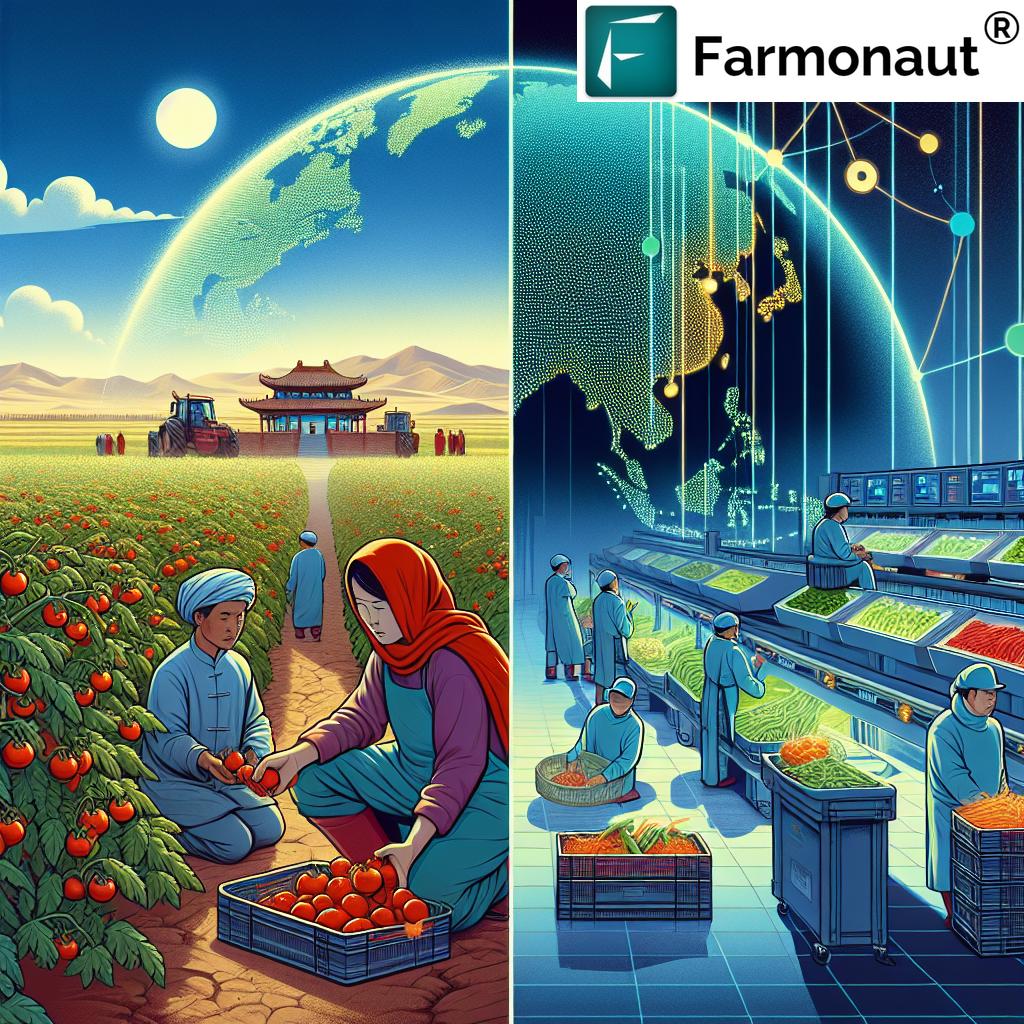
FAQs
- What are the main ethical concerns in Xinjiang’s agricultural sector?
The main concerns include forced labor, coerced land transfers, and political indoctrination of workers, particularly affecting the Uyghur population. - How does GIS technology help in monitoring agricultural practices?
GIS uses satellite imagery and remote sensing to monitor crop health, land use changes, and human activity patterns, providing insights into potential ethical violations. - What can consumers do to ensure they’re not supporting unethical agricultural practices?
Consumers can research product origins, support brands with transparent supply chains, and advocate for stronger ethical sourcing practices. - How are international regulations addressing the issue of forced labor in agriculture?
Many countries are implementing laws prohibiting imports of goods produced with forced labor and requiring companies to conduct human rights due diligence in their supply chains. - What role does blockchain technology play in improving supply chain transparency?
Blockchain creates an immutable record of a product’s journey from farm to consumer, enhancing traceability and making it easier to verify ethical sourcing claims.








